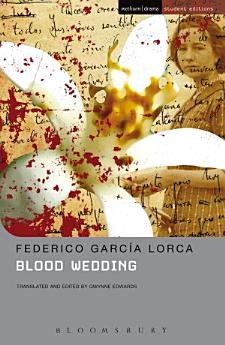Blood Wedding
ก.พ. 2020 · Bloomsbury Publishing
eBook
160
หน้า
reportคะแนนและรีวิวไม่ได้รับการตรวจสอบยืนยัน ดูข้อมูลเพิ่มเติม
เกี่ยวกับ eBook เล่มนี้
Blood Wedding is set in a village community in Lorca's Andalusia, and tells the story of a couple drawn irresistibly together in the face of an arranged marriage. This tragic and poetic play is the work on which his international reputation was founded.
Like many of Lorca's passionate and intensely lyrical plays that focus on peasant life and the forces of nature, Blood Wedding combines innovatory dramatic technique with Spanish popular tradition.
Methuen Drama Student Editions are expertly annotated texts of a wide range of plays from the modern and classic repertoires. As well as the complete text of the play itself, the volume contains a chronology of the playwright's life and work; an introduction giving the background to the play; a discussion of the various interpretations; notes on individual words and phrases in the text; and questions for further study.
เกี่ยวกับผู้แต่ง
Federico García Lorca was born in 1898, in Andalusia, Spain. A poet and dramatist, and also a gifted painter and pianist, his early popular ballads earned him the title of 'poet of the gypsies'. In 1930 he turned his attention to theatre, visiting remote villages and playing classic and new works for peasant audiences. In 1936, shortly after the outbreak of Civil War, he was murdered by Nationalist partisans. His body was never found.
ให้คะแนน eBook นี้
แสดงความเห็นของคุณให้เรารับรู้
ข้อมูลในการอ่าน
สมาร์ทโฟนและแท็บเล็ต
ติดตั้งแอป Google Play Books สำหรับ Android และ iPad/iPhone แอปจะซิงค์โดยอัตโนมัติกับบัญชีของคุณ และช่วยให้คุณอ่านแบบออนไลน์หรือออฟไลน์ได้ทุกที่
แล็ปท็อปและคอมพิวเตอร์
คุณฟังหนังสือเสียงที่ซื้อจาก Google Play โดยใช้เว็บเบราว์เซอร์ในคอมพิวเตอร์ได้
eReader และอุปกรณ์อื่นๆ
หากต้องการอ่านบนอุปกรณ์ e-ink เช่น Kobo eReader คุณจะต้องดาวน์โหลดและโอนไฟล์ไปยังอุปกรณ์ของคุณ โปรดทำตามวิธีการอย่างละเอียดในศูนย์ช่วยเหลือเพื่อโอนไฟล์ไปยัง eReader ที่รองรับ








